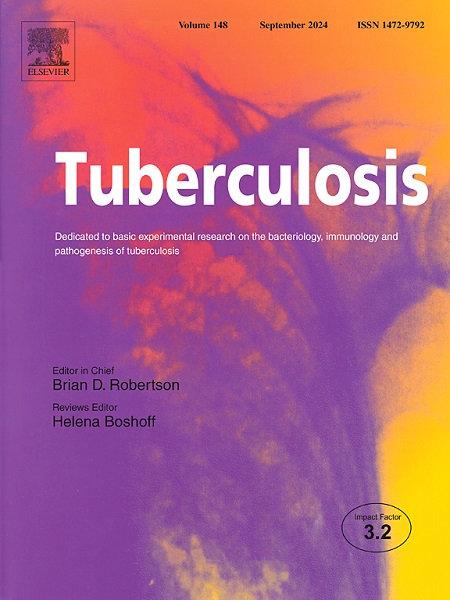Integrative exploration of 2-phenylquinolin-4(1H)-one tethered 1,2,3-triazole derivatives: A comprehensive in vitro and in silico investigation towards novel anti-tubercular agents
IF 2.9
3区 医学
Q3 IMMUNOLOGY
引用次数: 0
Abstract
Novel 2-phenylquinolin-4(1H)-one threaded 1,2,3- triazoles were designed, synthesized and evaluated for in vitro activity against Mycobacterium tuberculosis which could be putatively through inhibition of carbonic anhydrase β. Molecules were synthesized in simple Schottan Baumann reaction for amide synthesis. Purified compounds were screened for antitubercular and antibacterial activities. Among them, 1-((1-(2-methoxyphenyl)-1H-1,2,3-triazol-4-yl)methyl)-2-phenylquinolin-4(1H)-one 9j with 2-methoxy at the ortho position of phenyl ring indicated significant antitubercular activity with MIC value of 6.25, 3.12 and 3.12 μg/ml antimicrobial activity against Mycobacterium tuberculosis, gram positive and gram negative strain. The molecular docking and dynamics studies demonstrated that the compound 9j occupied the Zn-binding site of the enzyme with docking energy of -6.2 kcal mol−1. In silico ADME studies indicated that the synthesized compounds have good drug likeliness. The findings explore and present a potential series of antimycobacterial agents in the hope of developing new and advanced therapeutics for tuberculosis.
2-苯基喹啉-4(1H)- 1系链1,2,3-三唑衍生物的综合探索:新型抗结核药物的体外和体内综合研究
设计合成了新型2-苯基喹啉-4(1H)- 1,2,3-三唑,并对其体外抗结核活性进行了评价,推测其可能是通过抑制碳酸酐酶β而产生的。采用简单的Schottan - Baumann反应合成分子,用于酰胺合成。对纯化的化合物进行抗结核和抗菌活性筛选。其中1-((1-(2-甲氧基苯基)-1H-1,2,3-三唑-4-基)甲基)-2-苯基喹啉-4(1H)- 1 9j在苯基环邻位含有2-甲氧基,对结核分枝杆菌、革兰氏阳性和革兰氏阴性菌株具有显著的抗结核活性,MIC值分别为6.25、3.12和3.12 μg/ml。分子对接和动力学研究表明,化合物9j占据了酶的zn结合位点,对接能为-6.2 kcal mol−1。硅ADME研究表明,所合成的化合物具有良好的药物似然性。这些发现探索并提出了一系列潜在的抗结核药物,希望开发新的和先进的结核病治疗方法。
本文章由计算机程序翻译,如有差异,请以英文原文为准。
求助全文
约1分钟内获得全文
求助全文
来源期刊

Tuberculosis
医学-呼吸系统
CiteScore
4.60
自引率
3.10%
发文量
87
审稿时长
49 days
期刊介绍:
Tuberculosis is a speciality journal focusing on basic experimental research on tuberculosis, notably on bacteriological, immunological and pathogenesis aspects of the disease. The journal publishes original research and reviews on the host response and immunology of tuberculosis and the molecular biology, genetics and physiology of the organism, however discourages submissions with a meta-analytical focus (for example, articles based on searches of published articles in public electronic databases, especially where there is lack of evidence of the personal involvement of authors in the generation of such material). We do not publish Clinical Case-Studies.
Areas on which submissions are welcomed include:
-Clinical TrialsDiagnostics-
Antimicrobial resistance-
Immunology-
Leprosy-
Microbiology, including microbial physiology-
Molecular epidemiology-
Non-tuberculous Mycobacteria-
Pathogenesis-
Pathology-
Vaccine development.
This Journal does not accept case-reports.
The resurgence of interest in tuberculosis has accelerated the pace of relevant research and Tuberculosis has grown with it, as the only journal dedicated to experimental biomedical research in tuberculosis.
 求助内容:
求助内容: 应助结果提醒方式:
应助结果提醒方式:


